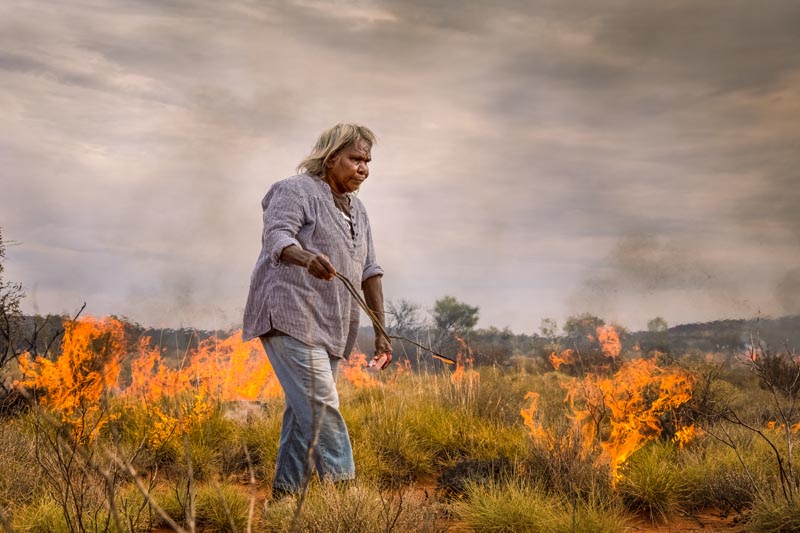
More than thirty researchers, conservation and climate change experts, land managers and First Nations knowledge holders are calling for greater protection and restoration of Australia’s natural environment and cultural traditions, to meet our emissions reduction goals and mitigate the threat of climate change.
The milestone Nature as a climate solution report offers concrete strategies for reducing emissions through caring for nature, Country, and culture, with contributions from Traditional Owners, carbon and biodiversity trusts and conservation managers across Australia.
Professor Brendan Wintle, from the School of Ecosystems and Forest Science at the University of Melbourne said the report underscores the need to act on pledges to end deforestation and restore nature, which Australia and other nations made at the COP26 Climate Summit in Glasgow this month.
“Unfortunately, in Australia we have a dismal record of biodiversity loss, and we’re still degrading our bushland and losing what is unique about this country – worsening the climate crisis,” Professor Wintle said.
Dr Megan Evans, from the University of New South Wales said Australian Government leadership is needed to drive strategic investment in nature-based emissions reduction solutions, including halting the loss and degradation of existing biodiversity resulting from weaknesses in current policy.
“Australia’s environmental laws and policies are piecemeal, often contradictory, and largely ineffective,” Dr Evans said.
“A core role of government is to lead and set the stage with institutions and public investment that protects what we have, but also encourages communities and the private sector to act and invest in nature. Government action must be commensurate with the scale of the biodiversity and climate challenges.”
The report’s findings show the urgent need for action to mitigate climate change and biodiversity loss, and the significant consequences facing all life on earth in failing to do so, mirroring global assessments of the Intergovernmental Panels on Climate Change (IPCC) and Biodiversity and Ecosystem Services (IPBES).
Dr Rachel Morgain from the School of Ecosystems and Forest Science at the University of Melbourne said the planet has reached a critical turning point.
“On the upside, we know what to do. Nature and culture-based solutions are a win-win, delivering benefits for all our communities. They keep our air and waterways clean, renew our soils, provide food and pollination, keep us healthy and happy, and help mitigate the effects of extremes like droughts and floods, all while storing and sequestering carbon,” Dr Morgain said.
The report states that greater investment and respect for Indigenous leadership in guiding healing and restoration of Country is key to achieving emissions reduction.
Key to this approach is focusing on social and cultural benefits of biodiversity and emissions reduction investment, according to Associate Professor Michael-Shawn Fletcher, from the School of Ecosystems and Forest Science at the University of Melbourne.
“One of the big barriers to living on this continent is a reluctance to accept and love what this continent is, to build connection and understanding, to connect people to place,” Associate Professor Fletcher said.
To this end, communities, landholders, land managers and researchers are already working together to sequester carbon through nature and culture-based solutions.
In Iningai Country, custodians of the Iningai people are working to restore Country and reawaken culture by restoring artesian waterways, sacred rock holes and resuming cultural burning practices.
Suzanne Thompson, Iningai Traditional Owner and Yumbangku Aboriginal Cultural Heritage and Tourism Development Aboriginal Corporation spokesperson said this work has helped restore their Country damaged through grazing and drought.
“Four days after one of the cultural waterholes was cleaned out, the rains came, which broke drought. There were waterfalls from the rain filling up these waterholes. A koala showed up in a tree the following morning. We call this Ngupitji Ngupitji: give to Country, and Country will give back,” Ms Thompson said.
This work also creates opportunities for Iningai people to return and care for their Country, Ms Thompson said: “We believe that having Country back has meant that not only Country can heal but whole communities can heal.”
The report was commissioned by the Australian Conservation Foundation with support from the Ian Potter Foundation and Hermon Slade Foundation through the Conservation Futures project.





